Legislative Update - Week 9
We kicked off week nine of the 2020 Regular Session with a visit from two special guests in the Senate chamber, Save the Children Action Network President, Mark Shriver and award-winning actress, Jennifer Garner. Many might not know that Jennifer Garner grew up in West Virginia where she witnessed the effects of generational poverty on children, similar to those we see in rural Kentucky. With the help of local advocates, Ms. Garner and President Shriver are working to preserve funding for Save the Children’s early childhood education and literacy programs, which serve more than 12,000 children throughout the Commonwealth. It was an honor to welcome them to Frankfort.
The Kentucky General Assembly crossed another mile marker this week by reaching the deadline to file new bills. Slightly less than 1,000 bills were filed—286 Senate bills and 647 House bills. With the bill filing deadline on March 4behind us, we now have a more complete view of the issues lawmakers will take up this year. There are sure to be tough decisions made, along with some compromises in the final weeks ahead
Senate Bill (SB) 2, the Senate’s proposed voter ID requirement, passed in the House on Tuesday with provisions. The Senate does not concur with these changes, and is therefore asking the House to recede its changes to the bill. If an agreement is not reached, SB 2 will then move to a conference committee for further discussion.
A House measure relating to medicinal marijuana research passed in the Senate this week. House Concurrent Resolution 5 urges national drug organizations, such as the U.S. Food and Drug Administration, to expedite research into the potential therapeutic benefits and risks of using marijuana for health purposes.
Women represented 40 percent of the computer science workforce in 1995. Today, that number is less than 25 percent. SB 193 establishes a goal of increasing participation in computer science courses by underrepresented groups, including females, minorities, students with disabilities, English language learners, and students whose families are eligible for free or reduced-price lunch. SB 193 includes the number of computer science courses or programs offered in each school, as well as the nature of those courses or programs, and the number of instructors required. I am proud to support this bill and hope to see an increase in computer science participation upon its passage.
Legislation to rein in surprise medical billing is also advancing to the House. SB 150 seeks to stop the practice by requiring insurers to cover surprise medical billing. This happens when a patient receives medical care—often unwittingly—outside of their insurer’s network. Subsequently, the doctors or hospital bills the patient for the amount insurance didn’t cover. SB 150 would require the state insurance commissioner to establish a database of billed health care service charges, and it would provide a dispute resolution program for medical insurers and providers to work out their differences over these out-of-network charges, not the patient.
A bill that I was honored to sponsor also passed the Senate this week. SB 182 would criminalize the “doxing” of minors. By definition, doxing is the act of publicly identifying or publishing private information about someone, especially as a form of punishment, intimidation, or revenge. This legislation was brought after a Northern Kentucky student was doxed following the posting of a video of him with a Native American protester in Washington D.C. SB 182 is a commonsense step to address the growing problem of cyber harassment in today’s digital-driven era, and would protect the privacy of minors.
Other bills passing this week include:
SB 21 allows veterinarians to report the abuse of animals under their care. Currently, veterinarians are prohibited by law from reporting abuse of animals under their care unless they have the permission of the owner or are under a court order.
SJR 35 directs the Cabinet for Health and Family Services to establish the Task Force on Services for Persons with Brain Injuries.
SB 115 amends the statute regarding the tuition waiver for Kentucky foster or adopted children to include graduate programs and extends the eligibility time period to 10 consecutive or non-consecutive semesters up to age 28.
SB 136 requires home health aides who have not provided services to clients who have Alzheimer’s disease or other forms of dementia to complete four hours of approved dementia training.
SB 148 Requires individuals applying to claim certain agriculture exceptions to first apply for an agriculture exemption number from the Kentucky Department of Revenue (DOR). The bill further requires that DOR develop a searchable agriculture exemption number database for sellers and retailers to use for verification.
SB 159 sets regulations for the operation and maintenance of splash pads and to establish their separation from those of swimming pools.
Thank you for staying engaged in the legislative process. It is an honor to serve you in Frankfort.
If you have any questions or comments about these issues or any other public policy issue, please call me toll-free at 1-800-372-7181 or email me at Chris.McDaniel@LRC.ky.gov. You can also review the Legislature’s work online at www.legislature.ky.gov.
